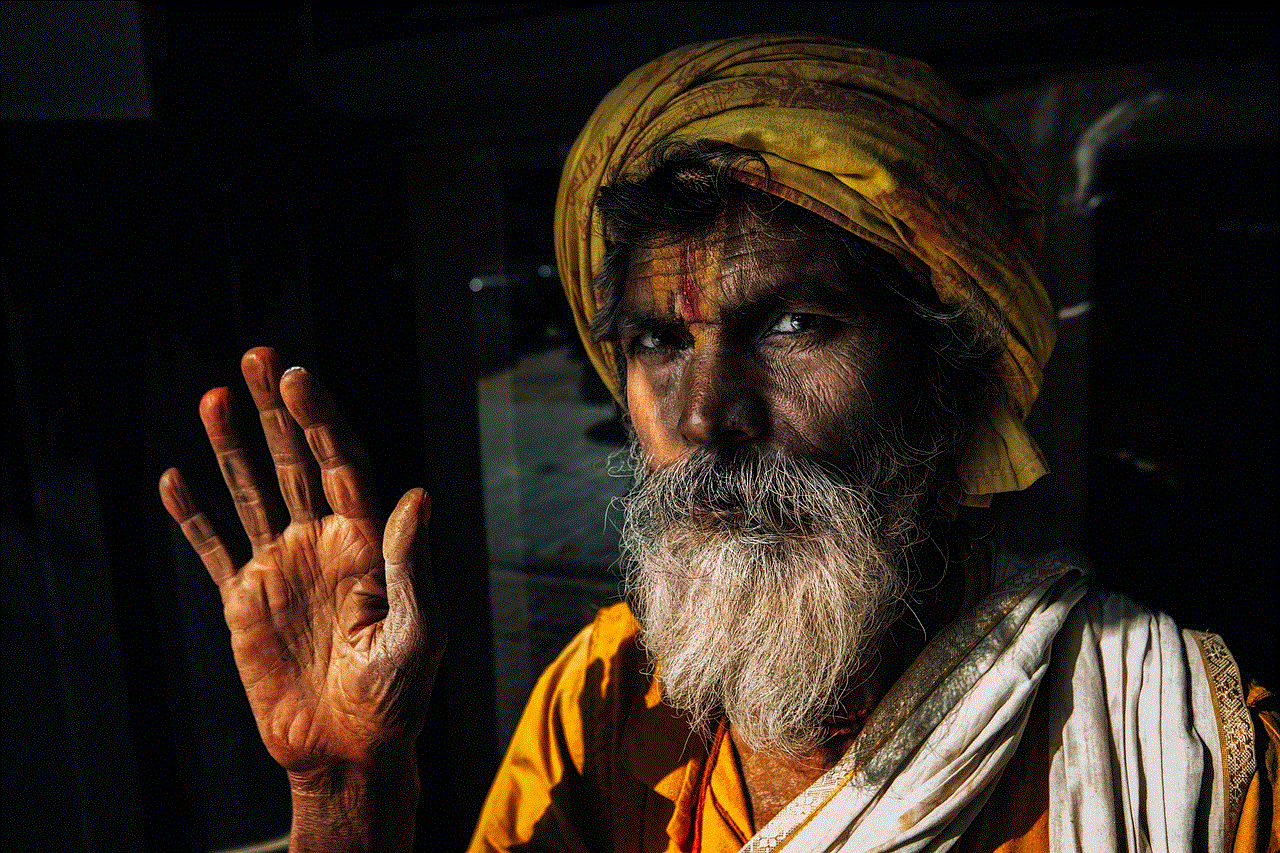what is vanishing mode in messenger
Vanishing Mode in Messenger: A Disappearing Act for Your Conversations
Introduction:
In the ever-evolving world of instant messaging, privacy and security have become paramount concerns for users. As a response to this growing demand, social media giant facebook -parental-controls-guide”>Facebook introduced a new feature called Vanishing Mode in Messenger. This feature allows users to engage in conversations where messages automatically disappear after a set period, ensuring a sense of privacy and confidentiality. In this article, we will explore the concept of Vanishing Mode in Messenger, its benefits, potential drawbacks, and its relevance in today’s digital landscape.
Paragraph 1: Understanding Vanishing Mode
Vanishing Mode, also known as Disappearing Mode, is a feature within Facebook Messenger that enables users to have conversations where sent messages vanish after a predetermined time. By activating Vanishing Mode, users gain control over the duration of the messages’ visibility, adding an extra layer of privacy and security to their conversations. This feature offers a new way to communicate, especially for those who value confidentiality, ephemeral conversations, or simply want to keep their chat history clutter-free.
Paragraph 2: How to Activate Vanishing Mode
Activating Vanishing Mode in Messenger is a straightforward process. Users can enable it by accessing the settings menu within the app and selecting the desired conversation. From there, they can toggle on the Vanishing Mode feature, allowing messages to automatically disappear. It is important to note that this feature is only available for one-on-one conversations and not for group chats.
Paragraph 3: Benefits of Vanishing Mode
The introduction of Vanishing Mode brings various advantages to Messenger users. Firstly, it enhances privacy by ensuring that sensitive or personal conversations are not permanently stored. This feature can be particularly valuable for individuals who frequently communicate sensitive information, such as business professionals or those discussing personal matters. Vanishing Mode also reduces clutter in chat histories, making it easier to navigate and find important conversations.
Paragraph 4: Enhanced Security and Confidentiality
With the rise of data breaches and privacy concerns, the need for secure messaging platforms has intensified. Vanishing Mode addresses this need by providing an additional layer of security. By automatically deleting messages after a set time, it minimizes the risk of conversations being accessed by unauthorized individuals. This feature is especially useful in situations where users share confidential information or discuss matters that they do not want to leave a digital footprint.
Paragraph 5: Encouraging Open Communication
In some cases, individuals may feel hesitant to express themselves fully in conversations due to concerns about their words being permanently stored. Vanishing Mode can help alleviate these concerns and encourage more open communication. Knowing that their messages will disappear can give users the freedom to express themselves candidly, fostering more authentic and transparent conversations.
Paragraph 6: Potential Drawbacks
While Vanishing Mode offers numerous benefits, it is essential to consider its potential drawbacks. One potential concern is the loss of valuable information. If users rely heavily on Messenger for work-related discussions or important conversations, the automatic deletion of messages may result in the loss of critical details or references. Therefore, it is crucial for users to carefully consider the nature of their conversations before enabling Vanishing Mode.
Paragraph 7: The Role of Vanishing Mode in Digital Well-being
In recent years, digital well-being has gained attention as individuals strive to find a healthy balance between technology use and their overall mental and emotional well-being. Vanishing Mode can contribute to this by reducing the digital footprint and the pressure to maintain extensive chat histories. For those who find themselves overwhelmed by the constant stream of messages, Vanishing Mode offers a refreshing break from the accumulation of virtual clutter.
Paragraph 8: Potential Misuse and Abuse
While Vanishing Mode aims to provide a secure and private messaging experience, it can also be misused. Some individuals may exploit this feature to engage in inappropriate or harmful conversations, knowing that the evidence will disappear. To address this concern, it is crucial for platforms like Messenger to implement measures to detect and prevent abuse, ensuring that users can continue to use Vanishing Mode without fear of harassment or harm.
Paragraph 9: Comparing Vanishing Mode with Other Ephemeral Messaging Apps
Vanishing Mode is not the first feature of its kind in the messaging landscape. Other apps, such as Snapchat and Telegram, have long offered similar functionality. While the core concept remains the same, there are differences in the way each platform handles the disappearing messages feature. Analyzing these differences can help users make an informed choice about which platform best suits their privacy and communication needs.
Paragraph 10: Conclusion
In conclusion, Vanishing Mode in Messenger introduces a new way for users to communicate privately and securely. By enabling messages to disappear after a set time, this feature offers enhanced privacy, security, and digital well-being. While there are potential drawbacks and concerns, the benefits outweigh them, especially for those who value confidentiality, ephemeral conversations, and reduced clutter. As the demand for privacy-conscious messaging continues to grow, Vanishing Mode provides a valuable solution for users seeking a disappearing act for their conversations.
stop sharing my location



In today’s world, technology has made it easier than ever to stay connected with loved ones and friends. With just a few taps on our smartphones, we can share our location with anyone, at any time. This feature has become a part of our daily lives, with many people using it for various reasons, such as meeting up with friends, finding directions, or simply letting others know where we are. However, with this convenience also comes concerns about privacy and security. This is where the option to “stop sharing my location” comes into play.
The ability to share our location with others has been made possible through location tracking technology. This technology uses Global Positioning System (GPS) or internet connection to pinpoint our exact location on a map. It has become an integral part of many apps and social media platforms, with users willingly sharing their location data. However, this has also raised concerns about how this data is being used and who has access to it.
One of the main reasons people choose to stop sharing their location is to protect their privacy. With the rise of cybercrimes and online fraud, it is no surprise that individuals are becoming more cautious about their personal information. By allowing someone to track our location, we are essentially giving them access to our daily movements and routines. This information can be misused by hackers or other malicious individuals, putting us at risk of identity theft, stalking, or even physical harm.
Moreover, location tracking can also reveal sensitive information about our lifestyle, such as where we live, work, or hang out. This data can be used by advertisers to target us with personalized ads, or by insurance companies to determine our risk factors. Many people are uncomfortable with the idea of their every move being monitored and used for commercial purposes without their consent.
Another reason people may want to stop sharing their location is to have more control over their digital footprint. With every location check-in or tagged post, we are leaving a digital trail that can be traced back to us. This can affect our online reputation and even future job prospects. Therefore, some individuals prefer to limit the amount of information they share online, including their location.
Furthermore, there are also concerns about the potential misuse of location tracking by governments and law enforcement agencies. In some countries, authorities have used location data to track and monitor citizens, infringing on their right to privacy. This has raised questions about the extent of surveillance and the protection of civil liberties. By stopping location sharing , individuals can exercise their right to privacy and limit government surveillance.
Apart from privacy and security concerns, there are also practical reasons why someone may want to stop sharing their location. For example, if you are constantly on the move or traveling, sharing your location may not be feasible or necessary. In such cases, turning off location sharing can save battery life and data usage. It also eliminates the need to constantly update your location for others, allowing you to focus on your travels without any distractions.
Moreover, stopping location sharing can also be a way to set boundaries and maintain personal space. In today’s hyper-connected world, we are expected to be available and accessible at all times. However, this can be overwhelming and sometimes even intrusive. By turning off location sharing, we can control who has access to our whereabouts and when. This can be especially beneficial for those in toxic relationships or who feel pressured to constantly share their location with others.
In addition to individual preferences, there are also cultural and societal factors that may influence the decision to stop sharing one’s location. In some cultures, privacy is highly valued, and sharing personal information, including location, is considered inappropriate. Similarly, in certain societies where women’s safety is a concern, they may choose to stop sharing their location to protect themselves from potential harm.
Despite the many reasons to stop sharing one’s location, there are also some potential drawbacks. For instance, if we are in an emergency and need help, sharing our location can be crucial in getting assistance quickly. It can also be helpful in finding lost or stolen devices, as well as keeping track of family members, especially children or elderly relatives. Additionally, some apps and services require location sharing for their features to work effectively. In these cases, choosing to stop sharing one’s location may limit the functionality of these apps.
In conclusion, the option to “stop sharing my location” is a personal choice that should be respected. While location tracking technology has its benefits, it is essential to consider the potential risks and implications of sharing our location data. Individuals should have the right to control their personal information and decide who has access to it. It is also important for companies and governments to be transparent about how they collect and use location data. With the proper understanding and awareness, we can make informed decisions about whether or not to share our location and protect our privacy in the digital age.
drug dealer apps iphone



In recent years, technology has greatly impacted the way we live our lives. From social media to online shopping, there seems to be an app for everything. This includes the illegal market of drug dealing. With the rise of smartphones and their widespread use, drug dealers have found a new way to connect with their customers through drug dealer apps on the iPhone.
The use of drug dealer apps on the iPhone has become a growing concern for law enforcement agencies around the world. These apps provide a convenient and discreet way for drug dealers to conduct their business. In this article, we will delve into the world of drug dealer apps on the iPhone and explore the impact they have on society.
The first question that comes to mind is, how do these apps work? Drug dealer apps on the iPhone follow the same concept as any other marketplace app. Dealers create profiles on these apps, showcasing their products and prices. Customers can then browse through the various options and place orders through the app. The transaction is usually completed through encrypted messaging to ensure privacy and security.
One of the most popular drug dealer apps on the iPhone is “WeedMaps.” This app was originally designed to help medical marijuana users find dispensaries in their area. However, it has since been used by drug dealers to sell various drugs, including marijuana, cocaine, and heroin. The app has a rating system, similar to Yelp, where customers can leave reviews and ratings for the dealers and their products. This adds an element of trust and credibility to the transactions.
Another popular drug dealer app on the iPhone is “High There.” This app is designed specifically for marijuana users and connects them with local dealers. It also has a feature that allows users to connect with like-minded individuals for socializing and smoking together. This app has been dubbed the “Tinder for weed” and has gained a significant following among the younger generation.
While these apps may seem like a convenient and discreet way to buy drugs, they also come with many risks. One of the biggest concerns is the lack of quality control. Unlike regulated dispensaries, dealers on these apps are not subjected to any quality standards. This means that customers are at risk of purchasing drugs that are laced with harmful substances or are of low quality. This can result in serious health consequences and even death.
Moreover, there is a high risk of scams on these apps. Since the transactions are done through encrypted messaging, it is easy for dealers to take advantage of their customers. They may send fake products or not deliver the products at all, leaving the customers with no way to trace the dealer or get a refund. This not only puts the customers at risk but also creates a negative image for the drug dealer apps.
Another concern is the easy access to drugs for minors. With the widespread use of smartphones, it has become easier for minors to access these apps and purchase drugs. This poses a serious threat to their health and well-being. There have been cases where minors have overdosed on drugs purchased through these apps, highlighting the need for stricter regulations.
The use of drug dealer apps on the iPhone has also created a new set of challenges for law enforcement agencies. These apps operate in a grey area of the law, making it difficult for authorities to take action. Since the transactions are done through encrypted messaging, it is hard for them to track down the dealers and gather evidence. Moreover, these apps can easily be deleted, making it difficult to gather any digital evidence.
However, law enforcement agencies are not sitting back and watching this illegal activity unfold on their watch. They have been working tirelessly to identify and shut down these apps. In 2018, the FBI was successful in taking down “Black Market Reloaded,” an app that was used to sell various illegal goods, including drugs. This was a significant victory in the fight against drug dealer apps on the iPhone.
One of the ways law enforcement agencies are combating these apps is by going undercover. They create fake profiles and interact with the dealers to gather evidence. They also use advanced technology to track down the physical location of the dealers. However, this is a time-consuming and resource-intensive process, and it is not always successful.
In addition to law enforcement, tech companies are also taking steps to combat drug dealer apps on the iPhone. Apple has strict guidelines for app developers, and any app that violates their terms and conditions is removed from the App Store. However, this has not stopped developers from creating new apps, and it has become a game of cat and mouse between the tech companies and the drug dealers.



The use of drug dealer apps on the iPhone also raises ethical concerns. These apps have made it easier for drug dealers to operate and make a profit, further fueling the illegal drug market. It also normalizes drug use and makes it seem like a harmless activity. This can have a negative impact on society, especially on the younger generation.
In conclusion, the rise of drug dealer apps on the iPhone has created a new set of challenges for society. While these apps may seem like a convenient and discreet way to buy drugs, they come with numerous risks. From the lack of quality control to easy access for minors and challenges for law enforcement, drug dealer apps have a negative impact on society. It is crucial for tech companies and law enforcement agencies to work together to combat this illegal activity and protect the well-being of the community.